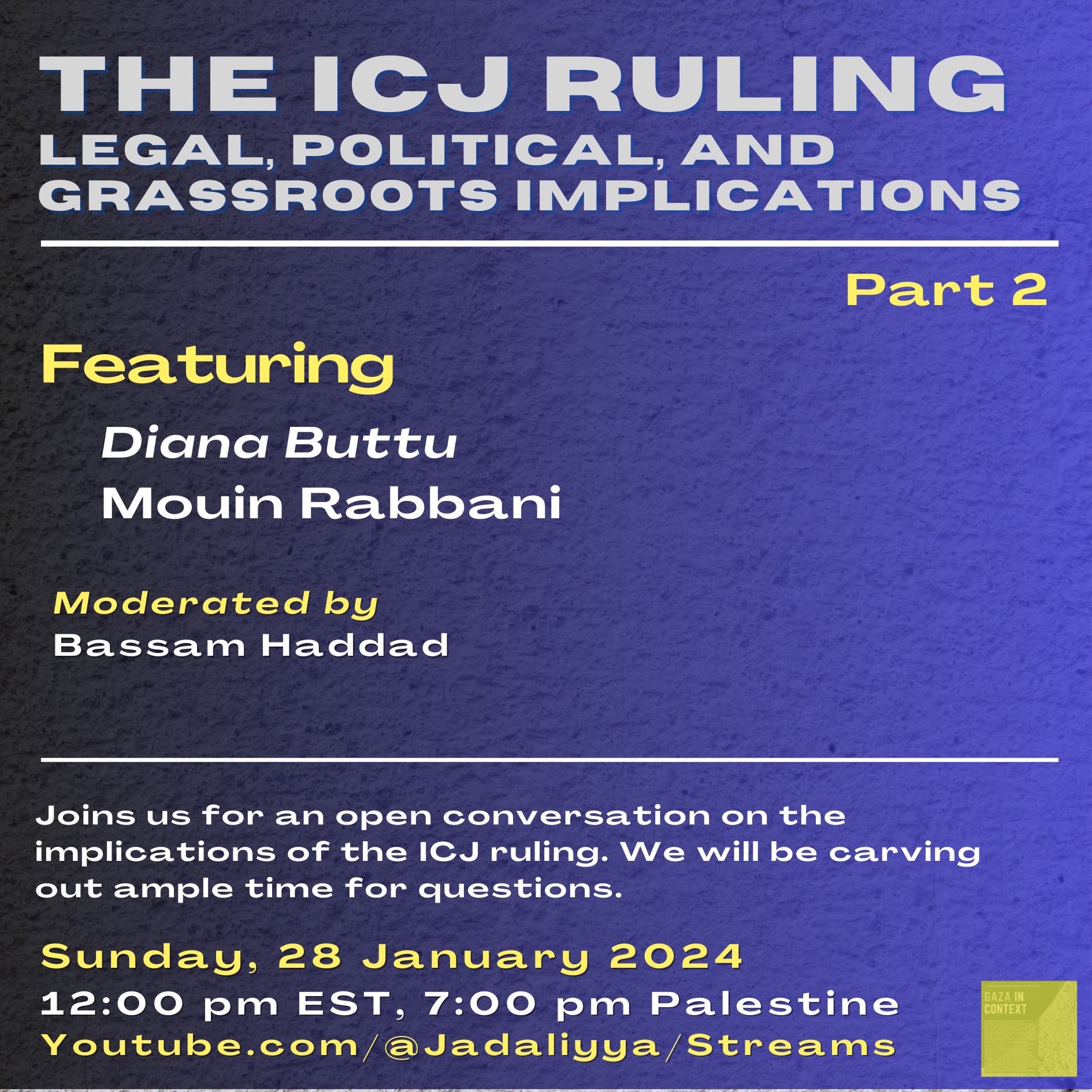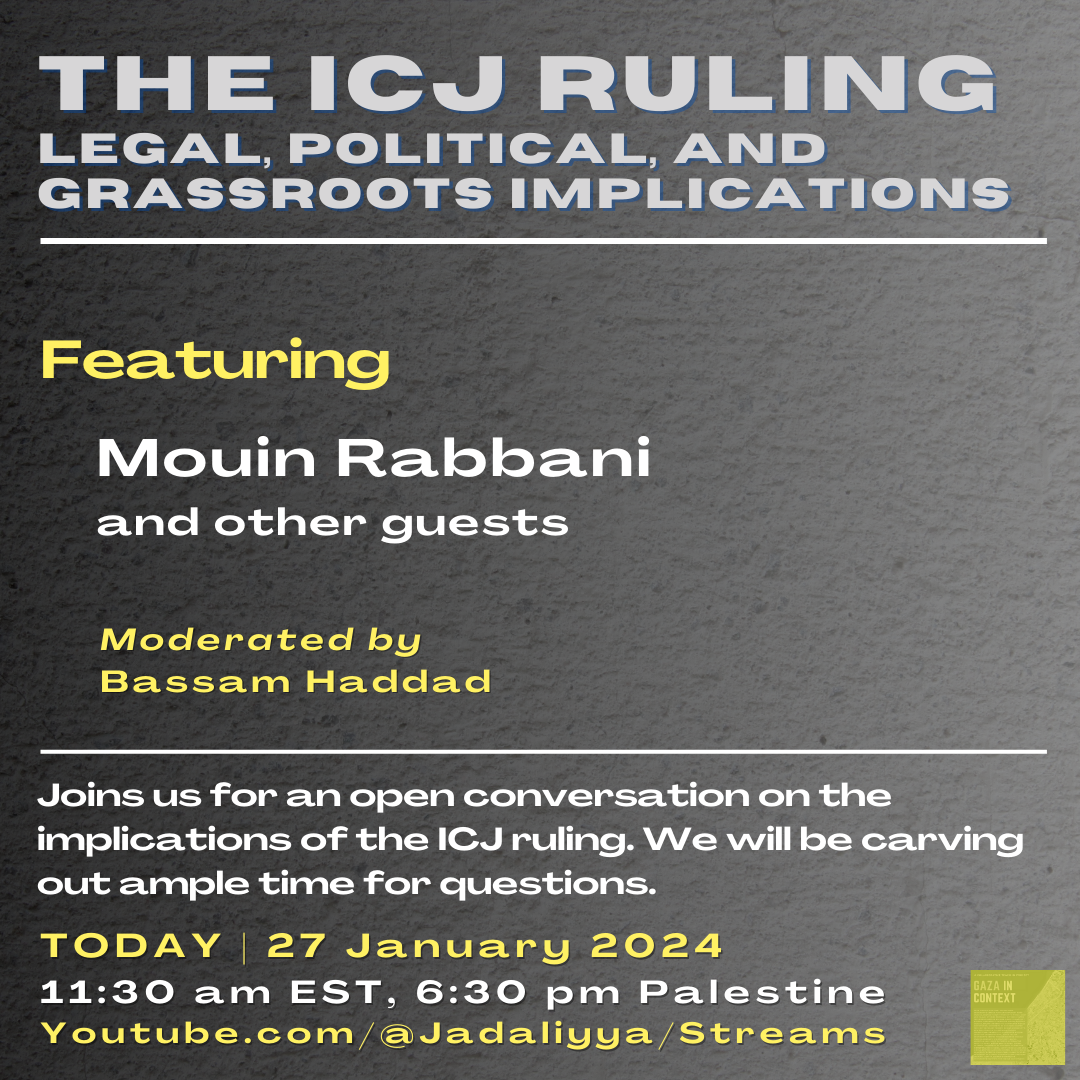

Diana Buttu is a lawyer specializing in negotiations, international law, and international human rights law. Earlier in her career, Buttu worked on the Israeli-Palestinian negotiations, serving as the only female negotiator during her five-year tenure. Buttu was a fellow at the Harvard Kennedy School of Government and at Harvard Law School. She also held a fellowship at the Stanford Center for Conflict Resolution and Negotiation and is an instructor at Harvard Extension School. Buttu received her undergraduate degree from the University of Toronto, a JD from Queen’s University in Canada, an LLM from the University of Toronto, a JSM from Stanford University, and an executive MBA from Kellogg Northwestern School of Management. She frequently comments on Palestine for international news media outlets such as CNN and BBC; is a political analyst for Al Jazeera International and is a regular contributor to The Middle East magazine. She maintains a law practice in Palestine, focusing on international human rights law
Mouin Rabbani is a researcher, analyst, and commentator specialising in Palestinian affairs, the Arab-Israeli conflict, and the contemporary Middle East. He has among other positions previously served as Principal Political Affairs Officer with the Office of the UN Special Envoy for Syria, Head of Middle East with the Martti Ahtisaari Peace Foundation, and Senior Middle East Analyst and Special Advisor on Israel-Palestine with the International Crisis Group. Rabbani is Co-Editor of Jadaliyya, where he also hosts the Connections podcast and edits its Quick Thoughts feature, Managing Editor and Associate Editor of the Journal of Peacebuilding and Development, and a Contributing Editor of Middle East Report. He is Non-Resident Fellow at the Center for Conflict and Humanitarian Studies (CHS) and at Democracy for the Arab World Now (DAWN). A graduate of Tufts University and Georgetown University’s Center for Contemporary Arab Studies (CCAS), Rabbani has published, presented and commented widely on Middle East issues, including for most major print, television and digital media.
Lisa Hajjar is a professor of sociology at the University of California-Santa Barbara and a co-editor of Jadaliyya. Her scholarship focuses on international law, war and conflict, human rights, and torture. She is the author of Courting Conflict: The Israeli Military Court System in the West Bank and Gaza (University of California Press, 2005), Torture: A Sociology of Violence and Human Rights (Routledge, 2013), and The War in Court: Inside the Long Fight against Torture (University of California Press, 2022).

